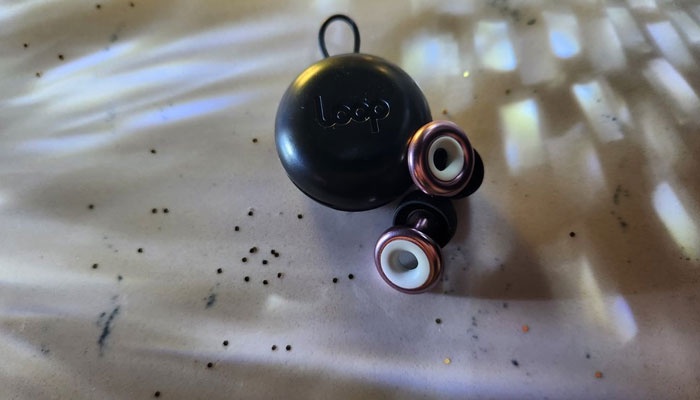Earplugs can be an important accessory for those who have difficulty hearing. However, they must be inserted correctly and cleaned regularly to prevent ear infections.
Earplugs safeguard our ears from excessive sound levels whether it’s from running a lawnmower, attending a live concert, or sleeping next to a snoring partner. But are they good or bad for our hearing?
Earwax
Earwax has a purpose: it helps your ears clean and protect them from infection. But if you regularly use earplugs, they can push the earwax back into the ear canal and cause a build-up that can lead to itching, dizziness, hearing loss, and more. If you’re prone to earwax problems, it might be best to avoid earplugs altogether or stick with disposable earplugs for noise protection that can be easily discarded.
You should also be careful when using reusable earplugs. These require cleaning and should be replaced regularly to prevent them from becoming contaminated by bacteria from your hands. Reusable earplugs are available made from a variety of materials, including foam, silicone, and wax, but they usually cost more than disposable earplugs.
If you’re thinking of wearing earplugs for sleep, choose a pair that is comfortable to wear and easy to insert. Foam earplugs are typically the cheapest, and they’re soft enough to provide a good fit for most people who sleep on their sides. Silicone earplugs are another option, and they’re available in different sizes to ensure a snug fit in any ear canal. However, silicone earplugs may not mold as well to the shape of your ear canal and tend to block out sound less effectively than other types.
Wax earplugs mold the shape of your ear and are considered one of the most effective at blocking out sound, but they’re not as flexible as silicone models. They may also feel a bit uncomfortable for some people who sleep on their side or need to position them differently in the ear.
Whatever type of earplug you decide to try, be sure that you’re inserting them correctly. Never push earplugs deep into the ear, as this can damage the ear canal and even rupture the eardrum. If you’re having trouble getting a secure fit, ask your doctor about an earwax removal procedure that doesn’t involve sticking cotton swabs in your ear.
Bacteria
Earplugs can help block out sounds that would otherwise keep you awake, whether it’s noise from a freeway or your partner’s snoring. But they can also help improve your sleep quality, which is critical to overall health and well-being. According to the National Sleep Foundation, poor sleep can cause a variety of problems, including mood swings, fatigue, depression, and lack of concentration. Sleeping with earplugs can lower these symptoms by blocking out noises that would pull you out of your deepest stages of sleep, which is important for maintaining good health and promoting productivity during the day.
In addition to sleeping, earplugs are used when a person wants to protect their hearing from loud sounds, such as music concerts or using a lawnmower or leaf blower around the house. They can also be worn when flying by airplane to prevent discomfort caused by changes in air pressure.
However, if someone wears earplugs regularly, the ear canal can become irritated and infected from the earwax that builds up or bacteria that grows in the moist environment of the ear canal. This can lead to impacted earwax, tinnitus, and even an ear infection, which can damage your hearing over time if left untreated.
If you use earplugs frequently, consider scheduling an appointment with us to get fitted for custom, reusable silicone earplugs that are made from molds of your ears. These earplugs are more comfortable than foam earplugs, which can be very uncomfortable to wear for long periods and can become dirty quickly. You should replace the earplugs often, and they should be cleaned every day to ensure that they are safe for your ears.
It’s vital to protect your hearing, and while earplugs can be helpful in many situations, you should visit a professional audiologist to learn more about the benefits of healthy hearing. Loud noises can destroy the tiny hairs inside your ears called cochlear cells, which can be permanently damaged without medical intervention. So, don’t hesitate to make an appointment for a comprehensive hearing exam today! We look forward to seeing you soon.
Ear infections
A person who sleeps with earplugs may be at risk of developing a painful ear infection. This can occur when the earwax build-up causes the earplugs to push against the eardrum and irritate it.
A bacterial ear infection can then develop, which can be quite serious. It can cause a fever, itchiness, and pain in the ear. The infection can also lead to a ruptured eardrum, which can be quite dangerous for infants.
Frequent use of earplugs can also contribute to a build-up of earwax. This is because the earplugs block off the ears from their natural ability to remove excess wax, which can allow bacteria to grow in the ear canal.
Ear infections can be difficult to treat, and the symptoms can include a muffled hearing sensation. This can be a danger when working or spending time outdoors, where it is important to hear warning sounds from cars or other people nearby. In this situation, the earplugs must be removed promptly to prevent further damage.
In addition to helping people get better quality sleep, earplugs can help people concentrate while they are at work or school. They can also reduce ringing in the ears and help with tinnitus. They are often worn by musicians who need to protect their hearing while playing gigs, but they can also be useful for other occupations that require them to spend a lot of time in noisy environments.
If you decide to wear earplugs, it's important to make sure that they are easy to insert and remove. Using a pair of silicone earplugs that are designed to slide in and out of the ear is a good option. Flanged earplugs are another type that is popular among musicians, as they have two or three webbed rings that can secure the plug inside the ear canal and provide a series of barriers against noise. Custom-molded earplugs are also available, and these can be made to fit the exact shape of your ears. They can be more expensive, but they offer the best protection against loud noises. When you're exploring different earplug options, consider searching for the latest Accessories Voucher Codes to save on your purchase and find the right earplugs for your needs while enjoying cost savings.
Noise-induced hearing loss
Earplugs can prevent noise-induced hearing loss, a condition that occurs when exposure to loud sounds leads to damage to the ear’s hair cells. This can lead to a loss of the ability to hear high-frequency sound, which includes speech and music. While this condition is not permanent, it can become more noticeable over time and affect one’s quality of life.
While hearing protection is beneficial, wearing earplugs too often can be harmful to your ears. This is because frequent use can lead to earwax build-up and cause a variety of other symptoms, including tinnitus and dizziness. It can also reduce the clarity of your voice, which may be noticeable to others.
However, if you wear earplugs for the right reasons, they can be beneficial for your ears. They can block out distracting noises and help you sleep better at night. They can also help you avoid being jostled awake by your partner’s snoring or sudden street or aircraft noises.
Earplugs can be made of different materials and come in a range of shapes and attenuation levels. The most common are disposable foam earplugs, which you can roll into a tight cylinder without creases and then insert in the ear canal. These earplugs expand to seal the ear canal and muffle sound, so you can hear in noisy environments but not as loudly as usual. Other types include silicone earplugs that fit into the ear canal and are moldable to your unique ear shape and custom attenuation level, as well as flanged plugs that have two or three rings that hold them in place.
Reusable earplugs are also available, which can be cleaned with specialized cleaning wipes or mild soap and water before being dried and stored in a special box until you need them again. This is an important step because dirty earplugs can increase your risk of infection, so you should wash and dry them before and after every use.
Some people choose to wear earplugs for other reasons, such as when using machinery attending concerts, shooting sports (like rifles or arrows), or riding motorcycles. Some people even wear them while swimming to keep water out of their ear canal. In most cases, earplugs are safe to wear, but it is important to take note of how your body reacts to them and consult with a hearing specialist if you notice any issues.
Some people choose to wear earplugs for other reasons, such as when using machinery attending concerts, shooting sports (like rifles or arrows), or riding motorcycles. Some people even wear them while swimming to keep water out of their ear canal. In most cases, earplugs are safe to wear, but it is important to take note of how your body reacts to them and consult with a hearing specialist if you notice any issues. When you're considering using earplugs for various purposes, don't forget to search for the latest Loop Earplugs Voucher Codes to save on your purchase and ensure effective hearing protection with cost savings.
Conclusion
Earplugs can be both good and bad for ears, depending on how they are used. While they can help protect the ears from loud noises and prevent hearing damage, overuse or misuse of earplugs can lead to earwax buildup, infection, or even permanent hearing loss. Therefore, it is important to use earplugs properly and in moderation, especially when it comes to prolonged exposure to loud noises.


No comments yet